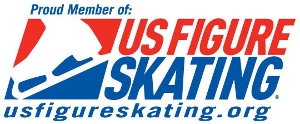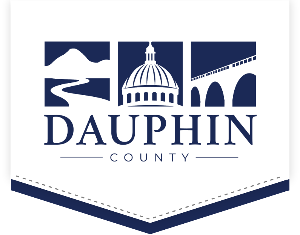WHY SYNCHRO?
FUN: Synchro is a discipline of figure skating that encourages
sportsmanship, camaraderie and teamwork.
CHALLENGING: Not only do you have to focus on yourself but
you have to match 15 other teammates on the ice.
GROWING: Synchronized Skating is the fastest growing
discipline in figure skating.
INCLUSIVE: While primarily a female dominated sport, the male
presence is growing and boys are often times highlighted
during programs.
SUPPORTIVE: Your teammates are there to hold you up or help
you up when you fall.
FAMILY: The world of synchro creates an atmosphere to
develop lasting relationships where friends become family.
CREATIVE: Synchro demands artistry and musicality to work
side by side with athleticism.
ENTERTAINING: Each program tells a story through movement
and music selection.
OLYMPIC WORTHY: There are goals and plans in place to
achieve Olympic status for the sport in the coming years.
RESUME BUILDER: Interested in skating for Disney on Ice or
other ice shows in the future? One of the first questions asked
of candidates is whether or not they have done synchro!
ABOUT THE SPORT
Synchronized skating is the fastest growing discipline both within U.S. Figure Skating and around the world. The first U.S. Synchronized Skating National Championship was held in 1984 and the U.S. played host to the first World Synchronized Skating Championship in 2000. Today, there are approximately 600+ teams registered with U.S. Figure Skating and as many as 5,000 skaters compete annually in the Synchronized Skating Sectional Championships.
Synchronized skating is a team sport in which 8 to 16 skaters perform a program together. It uses the same judging system as singles, pairs and dance and is characterized by teamwork, speed, specific shapes, intricate formations and choreographed challenging turn sequences. As with other disciplines, all teams perform a free skate with required well-balanced program elements. Additionally, teams at the junior and senior level also compete a short program consisting of specific required elements.
Elements in synchronized skating include blocks, circles, wheels, lines, intersections, spins, creative elements and connected and non-connected skating. The variety and difficulty of elements require that each team member is a highly skilled individual skater. The typical senior level skater has passed senior or gold tests in multiple disciplines.
A truly global sport, in addition to the U.S., many of the world’s top teams are from Finland, Russia and Canada. In the U.S., synchronized skating teams can compete in 14 different levels according to the team member’s age and skill level. Teams at the competitive levels of juvenile, intermediate, novice, junior, senior, collegiate, adult and masters compete first at their respective sectional championships. A placement in the top four to six at sectionals earns a spot at the U.S. Synchronized Skating Championships. Top performing teams at the junior and senior levels often have the opportunity to represent the USA in International Competition, with the top two teams each season going on to represent the United States at the World Synchronized Skating Championships.
FAQ'S
Who is Team Reflections?
Based out of the Central PA area, the Reflections organization was founded in 2001. Our organization has delivered National medals and has graduated skaters who later went on the compete as part of Team USA on the international and world stage. Our goal is to create a fun and rewarding skating experience for all skill levels while developing skaters into accomplished competitors. Our coaching staff has 50+ years of combined competitive synchro experience and all are passionate about giving skaters the opportunity to be a part of this amazing team sport.
Why Synchronized Skating?
Synchronized skating is an incredible team sport that teaches young athletes about teamwork, commitment, and discipline on and off the ice. While we aspire to develop higher level teams, we are developing our Beginner, Snowplow, Preliminary, and Adult team skaters to become strong synchronized skaters and confident, committed athletes as they move up through the team levels.
Is synchronized skating experience required to be part of Team Reflections?
No! We welcome skaters from singles, pairs and dance disciplines, too. Successful synchronized skaters come from all figure skating backgrounds.
Do I have to give up my private coaches or individual skating?
Definitely not! We encourage our athletes to continue in other disciplines of skating and to continue pursuing higher test levels. Many of our athletes continue to compete individually.
Where do Team Reflections skaters come from?
Our skaters come from all over the greater Central PA area (Exton, Hershey, Harrisburg, Mechanicsburg, Camp Hill and points in between).
What are Get in Sync Clinics?
Our Clinics are meant to introduce skaters to the Team Reflections organization and to be an upbeat and challenging experience with synchronized skating instruction from our coaching staff. Skaters will participate in both individual synchro and team synchro skills.
Where do our teams practice?
We practice at several rinks in the Central PA area including (but not limited to) PowerPlay Rinks (Exton, PA) and HersheyPark Arena (Hershey, PA).
How much does it cost to be on a team?
We pride ourselves in our ability to supplement as many fees as possible for our skaters through our club funding. For the 2022 - 2023 season we were able to cover 50%of apparel costs, covered all competition registration and ice fees, and provided free ice time opportunities for development.
Team Fees are paid in 5 payments throughout the season and include the following: ice time, coaching, competition dress, all team practice/competition apparel (jackets, tanks, pants, quarter zips, you name it). Transportation, hotels, and meals at all competition are also costs to be considered for the season (for more specifics, please do not hesitate to reach out and ask!).
When do our teams practice?
Weekly practice times for Preliminary:
The team has over 2 weekly practice sessions (most practices preceded by 40 minutes of off-ice practice). Preliminary has 1 practice during the week where we work on skills development and 1 practice on the weekend.
Weekly practice times for Snowplow Sam/Aspire Beginner:
The Snowplow and Aspire teams practice 1 to 2 hours per week with most practices preceded by 30 minutes of off-ice training.
Weekly practice times for Adult:
The Adult team has over 2 weekly practice sessions (preceded by 30minutes of off-ice). Adult has 1 practice during the week and 1 practice on the weekend.
Developmental On-Ice and Off-Ice practices are offered in the Spring and Summer months to continue our athletes' development in the off-season.




